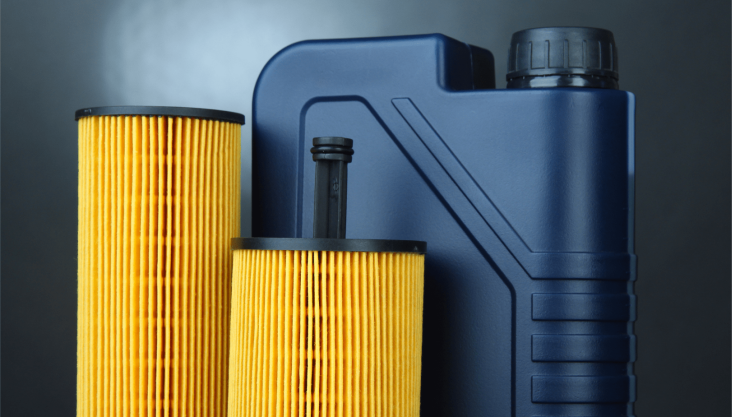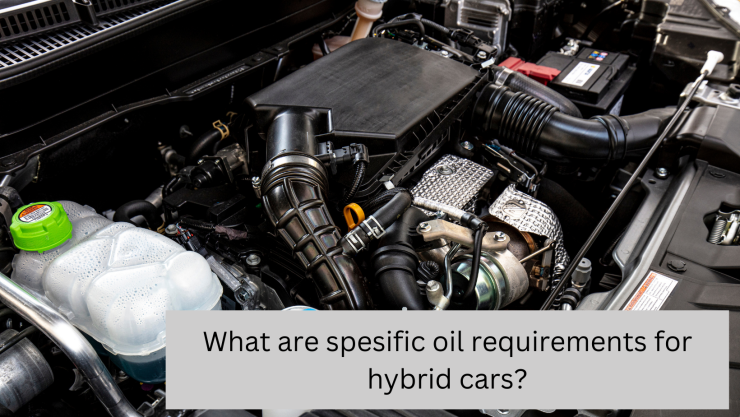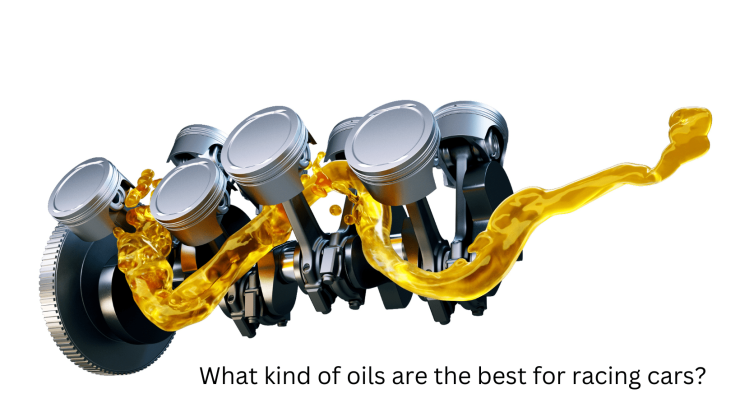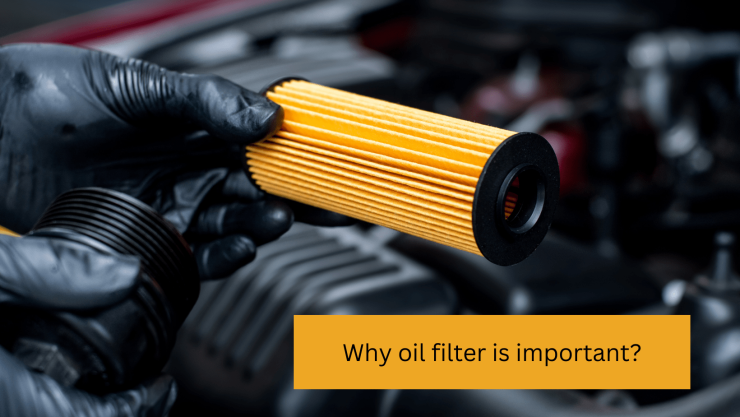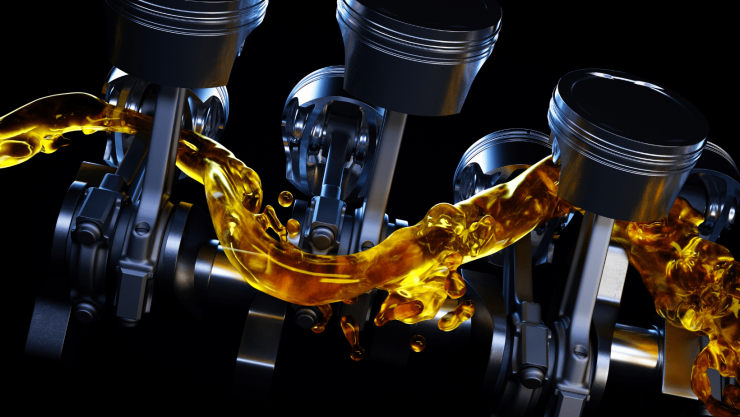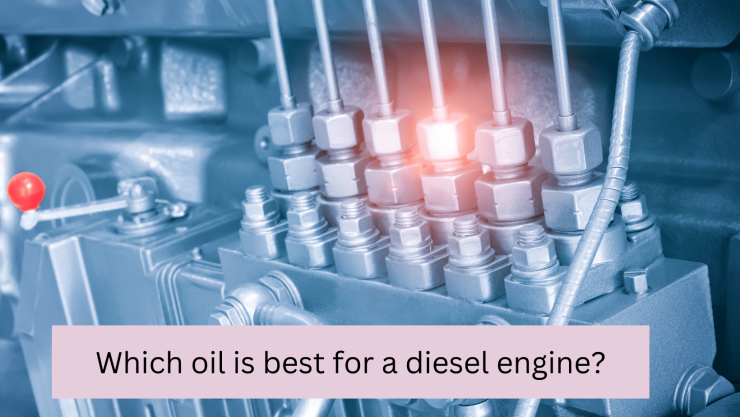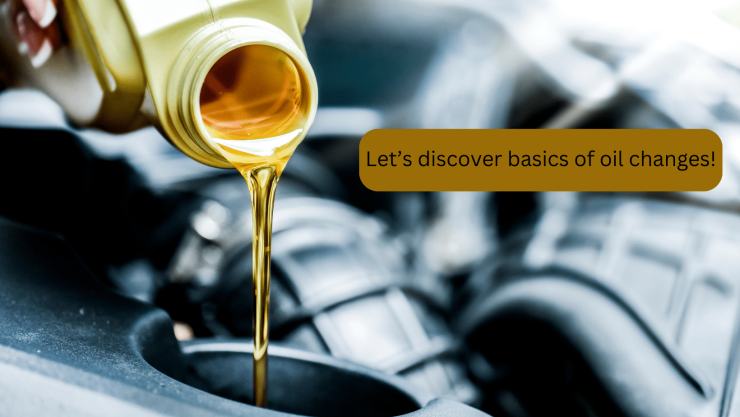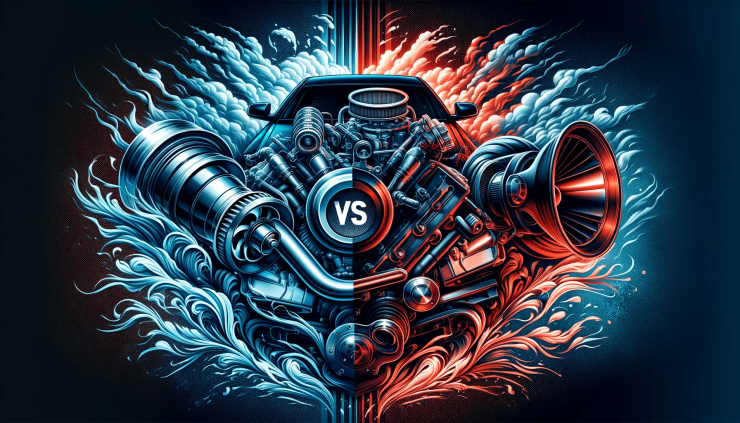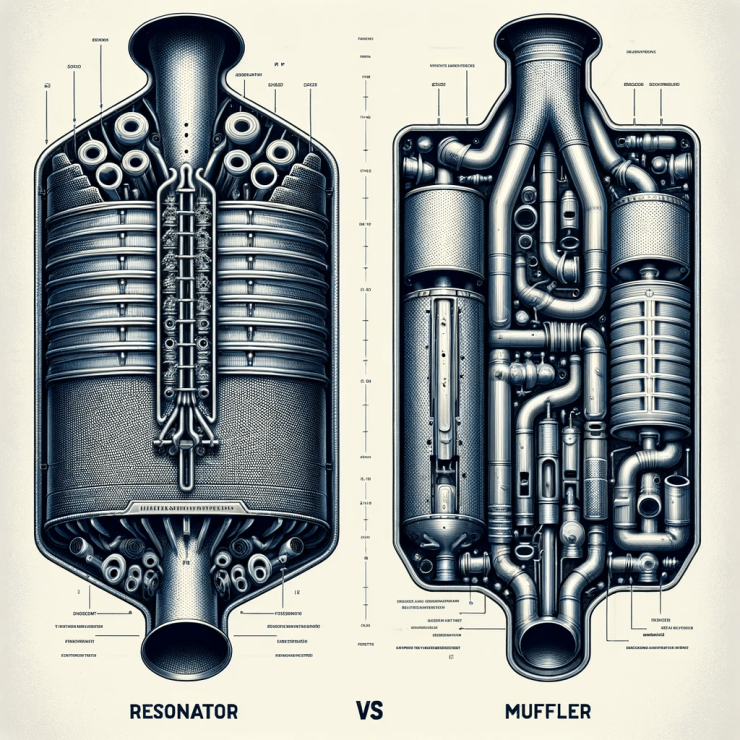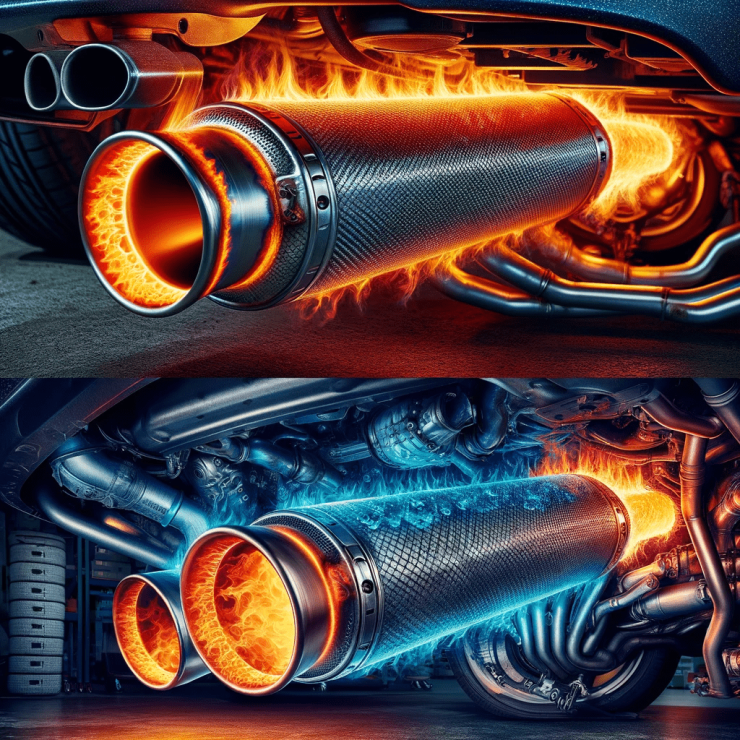How Often Should You Change Your Oil? (2024)
How Often Should You Change Your Oil? A Guide to Oil Change IntervalsIntroductionWhy Regular Oil Changes Are ImportantThe Role of Oil in Your EngineWhat Happens When You Skip Oil ChangesFactors That Determine Oil Change IntervalsVehicle TypeDriving HabitsOil TypeManufacturer RecommendationsEnvironmental ConditionsHow Often Should You Change Your Oil? Traditional Guidelines vs Modern RecommendationsThe Outdated 3,000-Mile RuleModern IntervalsSigns…
Continue Reading How Often Should You Change Your Oil? (2024)
The Importance of Regular Oil Changes for Hybrid Vehicles (2024)
The Importance of Regular Oil Changes for Hybrid VehiclesHybrid Cars and Oil Maintenance: Debunking MythsKey TakeawaysUnderstanding the Hybrid Vehicle Oil Change IntervalFactors Influencing Oil Change FrequencyOil Type and Quality: What’s Best for Your Hybrid?Choosing the Right OilAnnual Oil Changes: A Must for Low-Mileage HybridsWhy Regular Maintenance is KeyThe Process of Changing Oil in Hybrid VehiclesStep-by-Step…
Continue Reading The Importance of Regular Oil Changes for Hybrid Vehicles (2024)
Oil Types for Cold Climates (2024)
Understanding the Importance of Choosing the Right Oil for Your Vehicle in Cold ClimatesWhy the Right Oil Matters in Cold ClimatesThe Challenges of Cold WeatherProtecting Your EngineCharacteristics of Ideal Oil for Cold ClimatesLow ViscositySynthetic FormulationsAdditives for ProtectionRecommended Oil Types for Cold ClimatesGeneral RecommendationsSpecific BrandsThe Role of Viscosity in Cold WeatherUnderstanding Viscosity RatingsImportance of the Right…
Racing Car Oil Requirements
Racing Car Oil Requirements: Everything You Need to Know Racing cars are precision machines, designed to deliver peak performance under extreme conditions. Every component plays a critical role, and oil is no exception. But what makes racing car oil different from what you’d use in a regular vehicle? Let’s dive into the key requirements for…
Eco-Friendly Oil Changes (2024)
Eco-Friendly Oil ChangesOptimal Eco-Friendly Oil ChangesUnderstanding Manufacturer GuidelinesAdjusting for Driving HabitsTailoring Intervals by Vehicle TypeThe Impact of Driving HabitsHow Driving Style Influences Oil Change FrequencyEnvironmental Implications of Adjusted IntervalsChoosing the Right Oil TypeConventional vs. Synthetic OilSpecialized Oil NeedsEnvironmental Benefits of Proper Oil MaintenanceReduced WasteImproved Engine EfficiencyProlonged Vehicle LifeHow to Be an Environmentally Conscious DriverConclusionAdditional Resources…
The Essential Guide to High-Mileage Oil Changes: Personal Tips and Best Practices (2024)
The Essential Guide to High-Mileage Oil Changes: Personal Tips and Best PracticesWhy High-Mileage Oil Is a Game-ChangerHow Often Should You Change the Oil?A Decision Point: Synthetic vs. Conventional OilRegular Maintenance and Monitoring Are KeyReal-Life Example: My Honda AccordThe Cost-Benefit of Regular Oil ChangesMy Takeaway on High-Mileage Oil ChangesAdditional Resources The Essential Guide to High-Mileage Oil…
The Essential Role of Oil Filters in Car Performance
The Essential Role of Oil Filters in Car PerformanceKey TakeawaysThe Role of Oil FiltersWhy Oil Filters MatterWhen to Change Your Oil FilterChoosing the Right Oil FilterPopular Oil Filter BrandsImpact on Different Vehicle TypesEnvironmental ConsiderationsConclusion: The Importance of Oil FiltersAdditional Resources The Essential Role of Oil Filters in Car Performance Understanding the importance of oil filters…
Continue Reading The Essential Role of Oil Filters in Car Performance
Synthetic vs Conventional Oil: Maximizing Your Vehicle’s Performance
Synthetic vs Conventional Oil: Maximizing Your Vehicle’s PerformanceKey TakeawaysUnderstanding Oil Types: Composition and ManufacturingSynthetic OilConventional OilPerformance and ProtectionCost ImplicationsThe Impact of Oil Choice on Vehicle HealthLongevity and EfficiencyEnvironmental ConsiderationsComparison: Synthetic vs. Conventional OilChoosing the Right Oil for Your VehicleConclusion: Maximizing Performance with the Right Oil ChoiceAdditional Resources Synthetic vs Conventional Oil: Maximizing Your Vehicle’s Performance…
Continue Reading Synthetic vs Conventional Oil: Maximizing Your Vehicle’s Performance
Diesel Engine Oil Types: Your Guide to Optimal Performance
Diesel Engine Oil Types: Your Guide to Optimal Performance When it comes to maintaining a diesel engine, choosing the right oil is essential for keeping your engine healthy and performing at its best. Diesel engine oil is specifically formulated to handle the higher compression, torque demands, and unique emission control requirements of diesel engines. In…
Continue Reading Diesel Engine Oil Types: Your Guide to Optimal Performance
Understanding the Basics of Oil Changes
Why Regular Oil Changes are Essential Regular oil changes are a fundamental aspect of vehicle maintenance, crucial for prolonging engine life, enhancing fuel efficiency, and boosting overall performance. The process involves draining old, used engine oil and replacing it with fresh, clean oil, along with a new oil filter. Neglecting regular oil changes can lead…
Embracing Environmental considerations
Key Takeaways Key Point Details Eco-Friendly Performance Advancements in technology allow for powerful vehicles without sacrificing environmental responsibility. Sustainable Practices Incorporating sustainable practices in vehicle maintenance and performance upgrades can significantly reduce environmental impact. Innovations in Efficiency Exploring innovations like turbochargers and superchargers can enhance efficiency while maintaining performance. Welcome to a new era where…
Turbocharger vs Supercharger
Key Takeaways Aspect Turbocharger Supercharger Acoustic Signature Subtle and quieter Pronounced and louder Response Time Noticeable delay due to turbo lag Instantaneous power delivery Durability Requires regular maintenance Typically more reliable Impact on MPG Less intrusive at idle Reduces fuel economy Technical Complexity Higher, with potential for intercooling Lower, often without intercooling Suitability Efficiency-focused applications…
Resonators vs Mufflers: Function and Impact on Exhaust Systems
Key Takeaways Feature Resonator Muffler Primary Function Reduces engine noise, particularly high-frequency sounds Reduces overall exhaust noise and drone Location in Exhaust System Typically closer to the engine Usually located towards the rear end of the exhaust system Impact on Performance Minimal direct impact on performance Can affect backpressure, influencing performance Sound Quality Tunes exhaust…
Continue Reading Resonators vs Mufflers: Function and Impact on Exhaust Systems
Exhaust Heat Management in Vehicles
Key Takeaways Aspect Importance Heat Reduction Essential for protecting vehicle components and improving performance Heat Shields Prevent heat transfer to critical parts Ceramic Coatings Reduce surface temperature, enhancing longevity Exhaust Wraps Insulate exhaust pipes to maintain exhaust gas temperature Material Choices High-heat resistant materials are crucial for durability Understanding Exhaust Heat Management 1. Reducing Excessive…
Emissions and Legal Considerations for Exhaust Systems
Key Takeaways Aspect Importance Emissions Regulations Compliance with local and federal emissions standards is mandatory Noise Ordinances Adherence to local noise regulations is essential Aftermarket Modifications Must be legally compliant and not tamper with emissions control devices Inspection and Certification Regular inspections may be required to ensure compliance Material and Design Should meet safety and…
Continue Reading Emissions and Legal Considerations for Exhaust Systems

